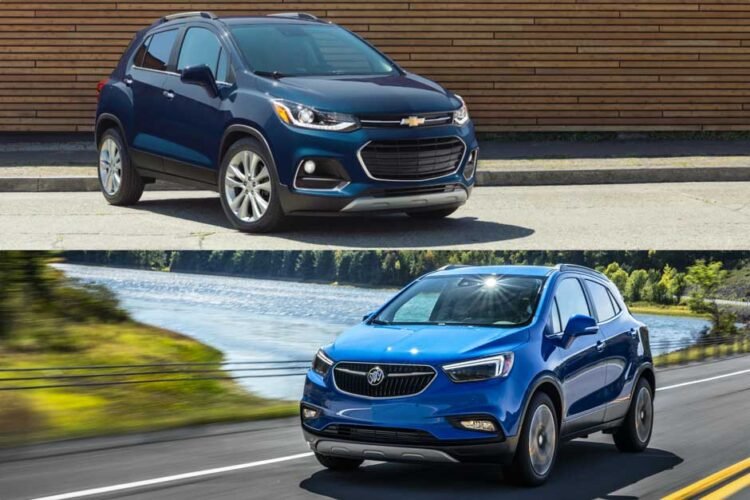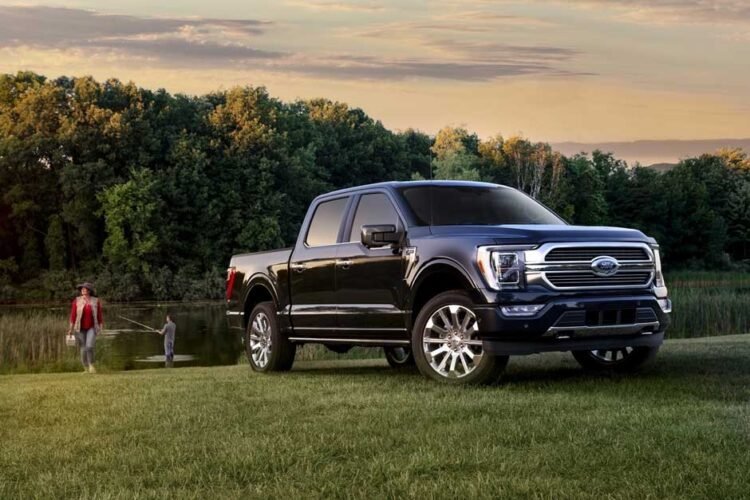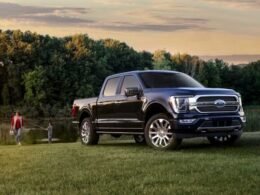When it comes to choosing a reliable, stylish, and performance-driven vehicle, two American car brands consistently top the list: Chevy and Buick. Both brands are part of the General Motors (GM) family, yet they appeal to different types of drivers with distinct priorities. Whether you’re looking for a rugged SUV, a fuel-efficient sedan, or a luxury-inspired ride, understanding the strengths and differences between Chevy and Buick can help you make a smart buying decision. If you’re exploring options at a local Chevy Buick Dealer, this guide will give you a side-by-side comparison to help you decide which brand suits you best.
Brand Overview: Chevy
Chevrolet, often referred to as Chevy, is known for offering a wide variety of vehicles at affordable price points. It has built a reputation on durability, practicality, and innovation, with vehicles ranging from compact cars to heavy-duty trucks. Chevy appeals to drivers who need dependable transportation for work, family, or outdoor adventures. Their product line includes the popular Silverado pickup, the Equinox SUV, and the sporty Camaro, each catering to different lifestyles and needs.
Brand Overview: Buick
Buick, on the other hand, sits between mainstream and luxury in the automotive hierarchy. It’s designed for drivers who prioritize comfort, quiet interiors, and refined aesthetics without venturing into premium-luxury pricing. Buick offers a more limited lineup, focusing on SUVs and crossovers like the Encore, Envision, and Enclave. These models often come with upscale materials, advanced safety features, and smoother ride quality. Buick has increasingly targeted younger professionals and families looking for elegance without extravagance.
Design and Aesthetics
Chevy vehicles generally have a bold, rugged appearance that emphasizes strength and utility. The designs are practical, with angular lines and a sense of toughness that appeals to drivers who value function over flair. However, newer models are incorporating sleeker elements to compete with more modern aesthetics.
Buick vehicles exude a more sophisticated and polished design. With smooth contours, chrome accents, and upscale finishes, Buick cars often look more expensive than they are. The brand uses soft-touch materials and intuitive layouts inside the cabin, giving drivers a more premium experience. If you’re drawn to style and elegance, Buick may have the edge.
Performance and Handling
Chevy’s range includes everything from commuter-friendly sedans to performance machines and heavy-duty work trucks. Chevy trucks, like the Silverado, are known for their towing capacity and rugged powertrains. Performance enthusiasts may gravitate toward the Camaro or Corvette, which offer exhilarating drives with strong acceleration and agile handling.
Buick, in contrast, prioritizes smoothness and comfort over raw power. While not underpowered, Buicks are engineered for quiet rides and refined suspension. Their handling is tuned to provide stability and ease of control, ideal for longer commutes or highway cruising. If performance is your priority, Chevy offers more variety. But if you want a relaxed, effortless drive, Buick shines.
Technology and Features
Both Chevy and Buick are equipped with GM’s advanced infotainment and safety systems, but there are some distinctions.
Chevy vehicles come with features like Apple CarPlay, Android Auto, and available Wi-Fi hotspots across most of their lineup. Their tech is user-friendly and consistent, especially in newer models. Safety features such as lane-keep assist, forward collision alert, and automatic emergency braking are becoming standard across many Chevy vehicles.
Buick steps it up with a more premium tech experience. Expect larger touchscreens, a quieter cabin due to active noise cancellation, and higher-quality sound systems like the Bose premium audio. Buick also integrates more advanced driver-assistance features as standard or with lower trim levels compared to Chevy. If in-cabin comfort and elevated tech matter to you, Buick offers the edge.
Interior Comfort and Space
When it comes to interior layout and comfort, both brands cater to different tastes.
Chevy interiors are practical and durable, with an emphasis on utility and space efficiency. Materials and trim levels vary widely depending on the model and price point. In SUVs like the Tahoe and Traverse, you’ll find spacious third-row seating and family-friendly features.
Buick emphasizes serenity and sophistication inside the cabin. Seats are plusher, materials feel higher-end, and the overall design is minimalist and calming. Even in smaller models like the Encore GX, Buick manages to deliver a refined and cozy interior environment. If a serene, premium-feel interior is important, Buick may be the better match.
Fuel Efficiency
Fuel economy is another area where comparison helps clarify your choice.
Chevy has a diverse lineup, and fuel efficiency varies widely. Small cars like the Malibu and Trax are fuel-efficient, while larger SUVs and trucks consume more gas but often offer diesel or hybrid options to improve MPG. Chevy also offers electric vehicles like the Bolt EV, appealing to eco-conscious drivers.
Buick, with its focus on crossovers and SUVs, tends to average slightly lower MPG figures than Chevy’s compact cars but makes up for it with turbocharged engines that are tuned for efficiency. Buick doesn’t yet offer an all-electric vehicle, but hybrid powertrains are in development. If fuel savings are a top concern, especially in smaller cars or EVs, Chevy provides more options.
Reliability and Maintenance
Both brands are backed by GM’s reputation for reliability, but Chevy has the broader track record, particularly with trucks and utility vehicles.
Chevy vehicles are known for their durability, especially models like the Silverado and Suburban. Maintenance costs are generally average, and parts are widely available, making repairs and upkeep manageable.
Buick often scores higher in customer satisfaction surveys when it comes to reliability, thanks in part to its lower model count and more focused engineering. Maintenance costs are slightly lower on average, and thanks to fewer performance-based parts, Buicks often have fewer wear-and-tear issues.
Resale Value and Warranty
Resale value can vary depending on the model and trim, but Chevy tends to retain value better, especially in the truck and performance segments. High-demand models like the Silverado and Camaro often hold strong resale values due to brand loyalty and consistent performance.
Buick vehicles may depreciate a bit faster, especially because the brand is less associated with mainstream buyers. However, their strong reliability ratings and extended warranties (similar to Chevy’s) make them a solid long-term investment for those who plan to keep their vehicles for several years.
Ideal Buyer Profiles
If you’re someone who needs a versatile vehicle lineup, loves to explore all types of driving experiences, or requires the utility of a truck, Chevy is likely your best fit. Chevy suits families, adventurers, commuters, and even gearheads looking for raw performance.
If you’re drawn to elegance, prioritize ride comfort, and appreciate quieter, smoother driving experiences, Buick may be a better match. Buick appeals to professionals, empty nesters, and families who want premium quality without stepping into luxury-brand pricing.
Conclusion
Choosing between Chevy and Buick ultimately comes down to your personal needs and driving preferences. Chevy offers more variety, performance options, and utility, making it ideal for active lifestyles and practical drivers. Buick delivers sophistication, comfort, and premium features that make every drive more enjoyable. Whether you gravitate toward rugged reliability or upscale tranquility, visiting a knowledgeable Chevy Buick Dealer can give you the hands-on experience you need to make the best decision. Both brands offer exceptional value in their own ways—your perfect match is just a test drive away.










